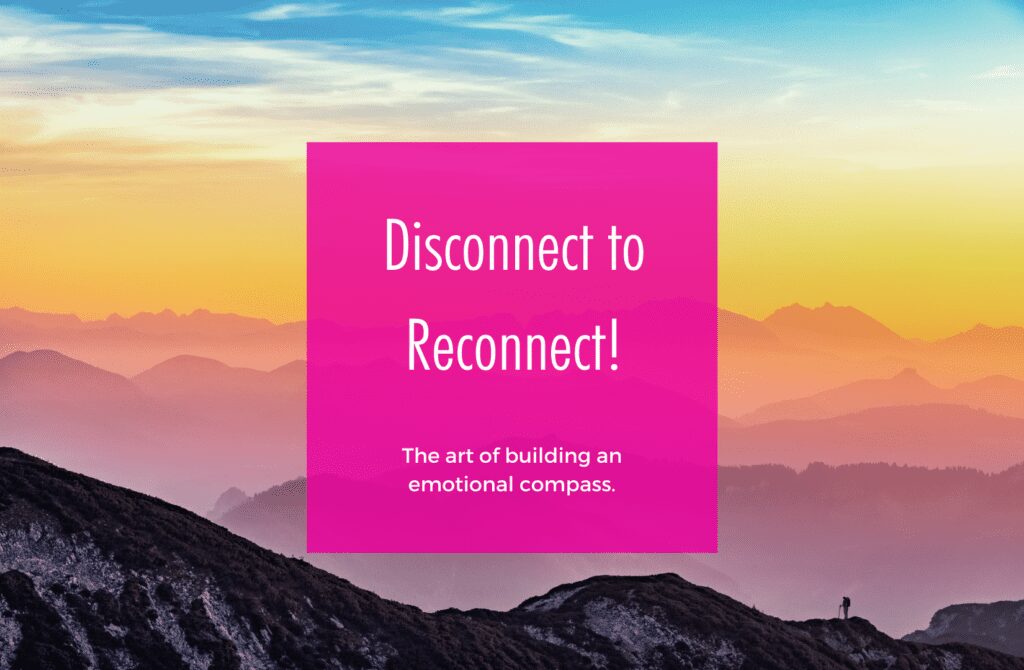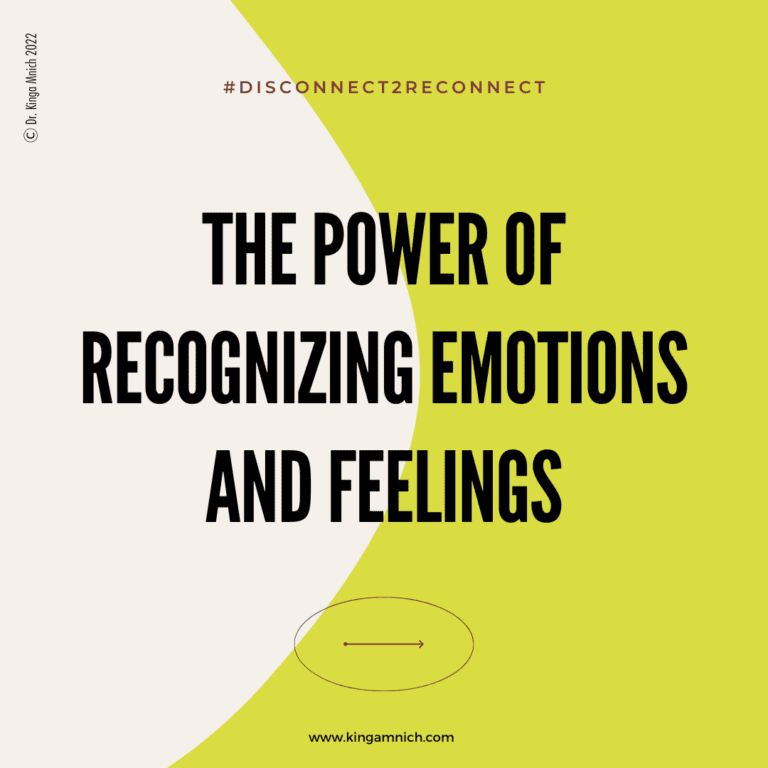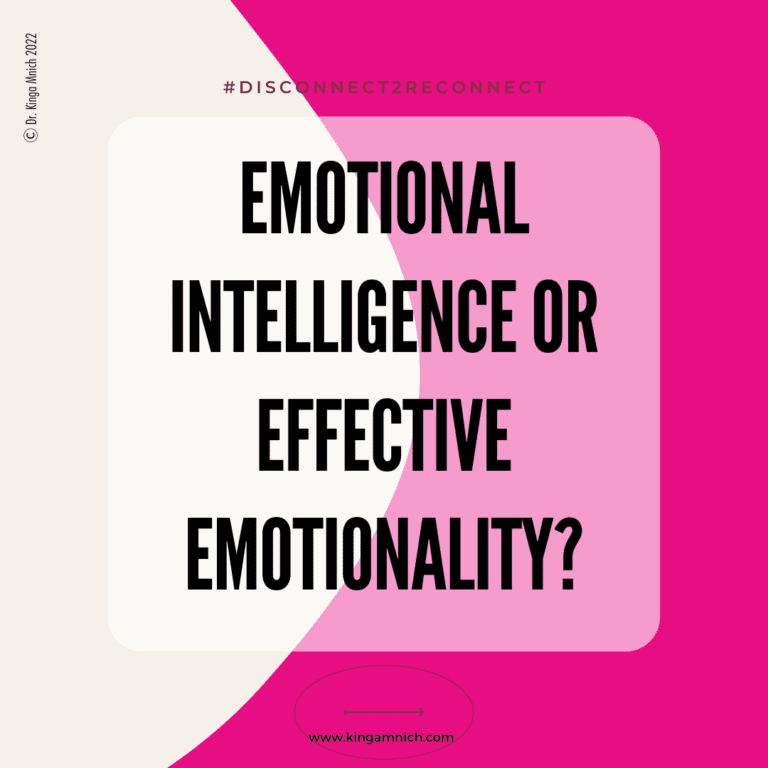The art of building an emotional compass.
By Dr. Kinga Mnich – Social Psychologist
To embrace your emotions has become a fancy slogan in which permitting yourself to “feel” supposedly increases your emotional intelligence. But this feeling doesn’t mean that you understand emotions in the full spectrum.
So, what if you need to disconnect from what you think you are feeling and learn to feel what you want to feel?
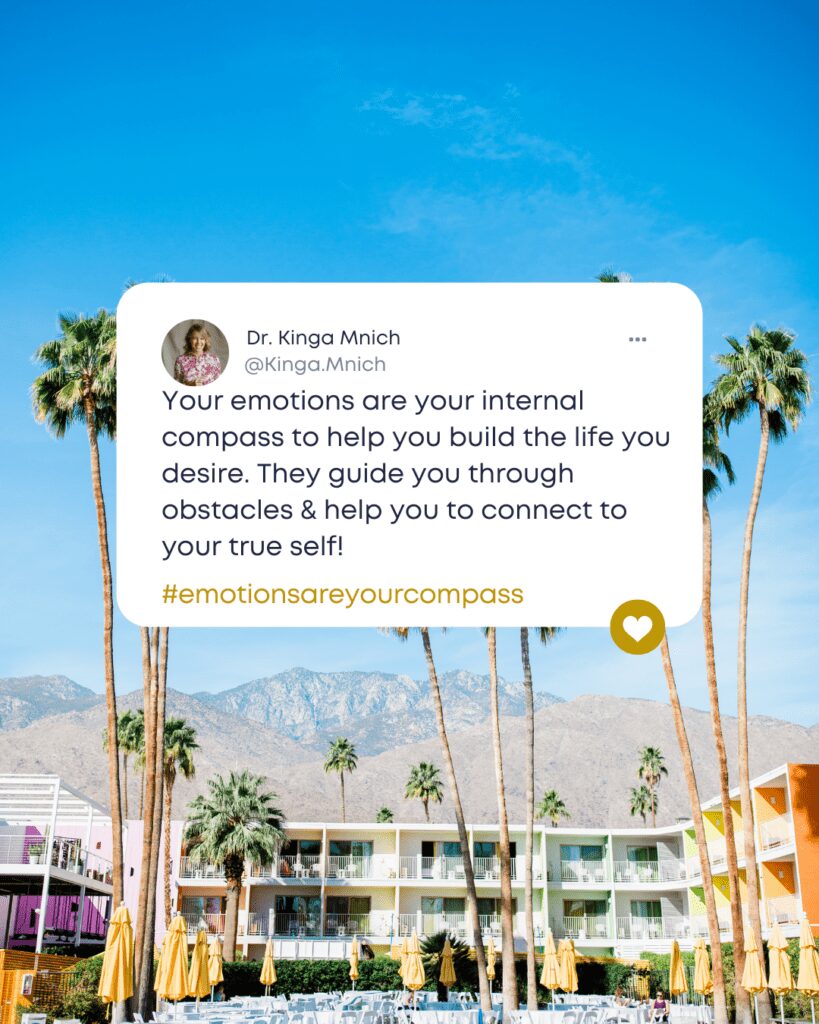
Isn’t it an exhilarating thought to realize that you can experience the world the way you want to experience it instead of feeling unpleasant emotions that were created in the past? What if you could simply change the way you experience anxiety, or even better, what if you could eliminate anxiety and embrace change with pleasant anticipation?
It isn’t enough to know that over 90% of the things we worry about never happen or that our biological programming will do anything to prevent us from having difficult experiences. If it doesn’t feel right, it’s just not right. But that doesn’t mean that our feelings are portraying an accurate situation. It just means that based on previous experiences our brain has precalculated possibilities of dealing with this new situation. These calculations are based on ensuring internal stability and avoiding the maximum amount of stressors.
Each individual’s internal protective system is also responsible for changing our memories. That’s why for some people the past tends to be better than the present and why we usually remember unpleasant experiences less traumatically the more time passes – at least on the conscious level. On the subconscious level, we remember the emotions that are associated with these experiences.
Stepping away from your feelings.
Understanding your emotions is more than just an act of categorizing the sensations you are experiencing; it goes beyond the concept of being able to verbalize your internal experience. More importantly, it means that you start understanding emotions as a whole-body experience that stores memories in the form of emotional sensations. That’s why our memories of emotions prescribe our behavior. So whatever you are feeling doesn’t necessarily present the reality.
Stepping aside, taking an additional breath and reflecting consciously on your feelings is the step that you need to take in order to create changes in your environment and behavior, so you can experience the present moment for what it is, instead of reliving a past memory subconsciously. Remember the time when you stumbled across your own words while speaking in front of your classmates in middle school. Do you remember the laughter? And even though it was a long time ago, you are still hesitant to speak publicly, because deep down your body remembers that feeling and wants to protect you from experiencing it again. In the meantime, you have forgotten what caused it and you feel inadequate to step out of your comfort zone. But is this how you want to feel?
Seeing the world through past experiences.
Emotions are a complex array of sensations resulting from thoughts and triggers. On the contrary, to common knowledge, they are more than internal processes. Anchored in the culture around us as well as any situations that we encounter make emotions highly social.
But they remain individual experiences, which are private and differ from person to person. Lisa Feldman Barrett published a groundbreaking study on how emotions are made and showed that emotions are created in different regions of the brain and different people can have different neural connections for the same emotions. For example, how you understand shame doesn’t have to align with the understanding of someone else’s shame. At the same time, emotions are the basis for any action. So they are essential for us to be able to experience the world and interact with one another.
Emotions are genuinely everywhere, and it is impossible to be unemotional. Our thoughts can trigger emotions and vice versa. That is one reason why it is so difficult for us to separate ourselves from our emotions and why we believe that everything we are feeling is ours to feel.
Our emotions serve as an internal evaluation of our external circumstances. They also allow us to understand how we should act and interact in different situations. Emotions are an essential part of our society because they help us to communicate and build community at the same time as they are helping our brain to regulate our personal bodily functions.
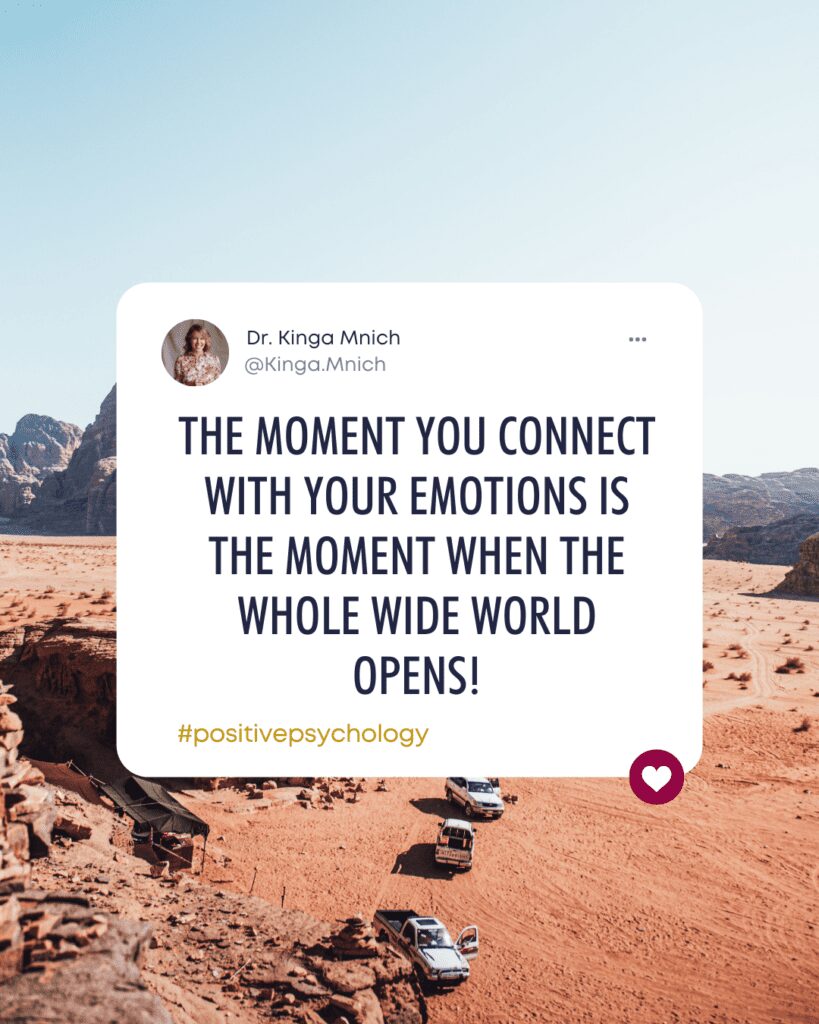
You can choose how you want to feel.
Unfortunately, there is no fast lane for rewriting your emotions. The good news, however, is that the more fun you have with it the faster you and your world will change. The very first thing that you need to understand is that no emotion is really positive or negative – despite the fact that we as a society have conceptualized feelings as either-or notions.
You can start by exploring any of the more uncomfortable emotions like anger, envy, fear, or annoyance. Anger especially is, for many, a difficult emotion that is often suppressed, and, even though it doesn’t feel like it, the process of suppressing impacts you negatively. Surprisingly, however, studies have shown that suppressed anger can lead to anxiety – so this is a great place to start.
Begin by recognizing what you are feeling, and how society understands this emotion. Continue looking at your upbringing and see how this particular emotion was used in your earlier life. Then take a piece of paper and write down how you would actually like to experience this particular emotion now and what kind of impact it should have on you. Make a conscious decision to change the story of it. Here comes the fun part. Act surprised and curious next time this emotion arises. You might even want to say, ‘here you are again, I was waiting for you’. This is particularly effective in emotions that impact us strongly.
The next step is clearing your subconscious mind through meditation: allowing yourself to observe what comes up for you and letting yourself curiously explore what is deep-seated in your mind. Step by step, the way you want to feel will change as you overwrite the brain’s simulations with new ideas and detach yourself from your emotions.
And the most remarkable effect this has is changing how you feel, changing the way you think and react.
First publish on Thrive Global: https://thriveglobal.com/stories/disconnect-to-reconnect-2/

